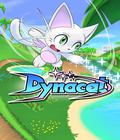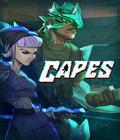Playground Games is comprised of former employees from the best racing studios of the past two console generations, including Bizarre Creations (the Project Gotham Racing series and Blur), Black Rock Studios (Pure), Codemasters (Grid and Colin McRae DiRT), Criterion Games (Burnout), Reflections (the Driver series) and Slightly Mad Studios (Need for Speed: Shift). With a pedigree like that, the expectations for its first game are high. When it was revealed that they were the co-developers along with Turn 10 Studios for Forza Horizon, expectations grew exponentially since the Forza series rivals Gran Turismo as one of the best console racing simulators. After what feels like a minimal amount of coverage, the game is finally out, and it meets some expectations and exceeds others.
The core of the racing mechanics remains true to the Forza franchise. The handling of the cars and their reactions to the road are rooted in the simulation world, but the whole thing is pretty tweakable. Brake assists and the driving line can be toggled on or off, and the same goes for the time reversal system, which was introduced in earlier Forza titles. As before, the different toggles determine how much bonus cash you earn per race, so those who want to take it easy will win races without breaking a sweat, but those who want to challenge themselves will come away with more cash.
Unlike previous Forza games, Forza Horizon sprinkles some arcade ideals into the mix. While the physics remain technical enough so that wild steering guarantees a loss, there's less of a speed penalty when your vehicle leaves the pavement. Hitting other vehicles will still slow you down, but don't expect a tremendous drop in speed. Damage also doesn't affect car performance, so taking too many hits to one side doesn't make your car veer off in one direction or cause your engine to sputter and die. Even after your car flies into the air and tumbles on the track, you can get the car back on all four wheels and drive at top speed. Players can still race competitively when vehicles leave paved roads and head into rough territory.
The biggest nod to arcade play is the inclusion of a trick system, which is similar to Kudos in the Project Gotham Racing series. You get points for doing things during the race, such as drafting, drifting and passing cars, but it also applies to things like trading paint with an opponent or smashing into destructible objects on the road. Each action gives you points, and those points are multiplied when the severity is amplified. Moves can also be chained to raise the multiplier, resulting in a plethora of points provided you don't bump into anything before the points can be banked. It gives players some incentive to always race with flair.
The blending of simulation and arcade mechanics works much better than expected. Arcade players will find a driving system that is fairly easy to pick up but remains challenging for those who want to go for faster times. It also provides a lower barrier of entry to simulation mechanics since the system doesn't punish players for being a tad reckless. Simulation players will find their preferred driving mechanics attached to exciting racing scenarios. In a way, this is a bridge title so that people in either camp can experience what other racing fans enjoy while not straying much from what they love. Best of all, from the lowest D-class cars to the R2-class machines, every vehicle seems so fast that it feels one wrong move can mean an instant loss of control.
There is only one single-player mode, and for the first time in the series, there's a story attached. Every year, the Horizon Festival celebrates the car lifestyle with parties at night and racing throughout the day. This year, the festival takes place in Colorado, and Darius Flynt has been the reigning champion for three years. After barely making it into the festival as a competitor, you are tasked with rising in the rankings and becoming the new festival champion.
Just like every other series entry, Forza Horizon puts you in the driver's seat to teach you the basics. The introductory race is split into two different sections. The first places you in a 2013 Dodge Viper GTS as Flynt drives a Ferrari 599. While you aren't expected to beat him to the festival, the sequence gives you a chance to get reacquainted with the driving mechanics. The second section, which comes up immediately after a cut scene, places you in a 1995 Volkswagen Corrado VR6 in a race to reach the festival before the final championship bracelets are gone. This section is designed to teach you about racing in an open world, with a focus on the presence of traffic. You can take shortcuts and engage in aggressive racing as you face oncoming traffic and the annoyance of civilian traffic slowing you down. It adds a new dimension to the series.
Once you go through the opening sequence, you'll discover how the progression system works. You can enter festival events throughout Colorado if you have the corresponding wristband color that indicates your festival placement level. Along with the wristband color is a car requirement, so you can participate if you have a combination of the car model, make and class. One race, for example, might ask you to race in B-class Ford cars while another wants you to race in A-class all-wheel-drive vehicles from the last decade. Each race has a number of associated points, and once you reach a given point threshold for the bracelet class, you'll be upgraded to the next color class and given a chance to race in more difficult races for more points until you reach the final bracelet level and duel against the champion.
The festival events consist of two different race types, each taking place on different terrain and in different parts of Colorado. Lap races are standard fare and usually take place on closed sections of the road. Checkpoint racing, on the other hand, tasks you with traveling from one point to another — while among civilian traffic. Both event types give you the opportunity to earn cash and points for the festival. Once you complete the point requirements, another event type opens up: the duel. You go on a checkpoint race, and the winner gets the cash and opponent's car.
The festival events aren't the only things going on in Colorado. Illegal street racing hubs have been set up for those who want to race laps for cash and cars. Horizon checkpoints also litter the map with stunts for more cash and travel discounts. Some are fairly mundane, such as trying to get a certain car to a spot for a photo op and doing so without a scratch. Others are more exciting, such as trying to use a specific car to hit a speed limit.
Then there are the showcase events, which net you both cash and cars for successful completion. You have one event where you'll race to see who touches down at the target spot first: your car or a hot air balloon. Another event has you in a Ford Mustang trying to outrace a classic P-51 Mustang through checkpoints. There is a willingness here to go for some silliness in the name of fun.
All of these events are connected via an open Colorado countryside that seems real for those who haven't visited the state. The game gives you plenty of incentive to drive to events or drive around for your own enjoyment. Speed Traps and Speed Sections give you a chance to set records. You can also set up impromptu races with any of the festival's participants by driving behind them, hitting a button, and letting the GPS set a course. For those who like exploring, there are nine high-class cars and 100 special signs stashed away in the world. Smashing into the signs gives you a discount percentage on garage parts. For those who want to take things more casually, you can drive around and discover every road, though the only reward is an Achievement.
Every event, save for the impromptu street duels, has either a leaderboard or the Rivals system from Forza Motorsport 4, where any record you accomplish comes with the ability to beat someone else slightly above you on the leaderboard, whether it's a friend or stranger. The only annoyance is that the system only notifies you about a potential rival after the race is over, and the reward for beating a rival is somewhat paltry compared to other possible activities. The rival challenges can be taken later if you wish, and with monthly challenges also coming from Playground Games and Turn 10, it never feels like you're 100% done with the game.
The game world in Forza Horizon is teeming with activity. A day and night cycle, a longtime community request, has finally been implemented. Civilian cars behave quite normally, blinking their headlights if you get in their way and getting in your way at inopportune moments. Other racers litter the scene, and you'll sometimes see them engaging in private duels, furthering the illusion that you're not the only one in the game world.
The livery is back with the same creation tools, so accomplished car artists can re-create their masterpieces from previous titles or start new ones. Though the marketplace for customization is built specifically for Horizon, you have the option to import saved vinyls from Forza Motorsport 4, saving you some time if there's a particular set of stickers you want. The Photo and Movie modes also make a return and are more appealing to use. Aside from Autovista mode, just about everything you had in Forza Motorsport 4 is available in Forza Horizon.
With such a deep single-player experience, it shouldn't be a surprise that the multiplayer also demonstrates that depth. The Rivals system from the fourth game is deeply integrated into just about everything you do in the single-player game, so you're always able to play against others online. Car Clubs are also available for those who want to hold private races, share cars, or pit your club against other clubs to see who is better. As for actual online play, you have the standard fare of circuit races and checkpoint races, each customizable in terms of car class and which assists are allowed (or banned). Just like the other Forza games, the online performance is excellent, with no hint of lag in eight-player races.
Forza Horizon also offers up some pretty unorthodox events in multiplayer. Cat and Mouse has you playing in teams, with the cats in fast vehicles and the mice in slower ones. There's one mouse per team, and it's his goal to hit the finish line first while the cars do their best to help their mouse or sabotage the enemy. King races have you in an open environment trying to hold on to the crown for as long as possible while other cars try to steal it. Infected reverses the rules where one car tries to pass on the infection to others, and the winner is the one who lasts the longest before getting the virus. The events are chaotic and short depending on your competition, but they provide lots of enjoyment.
What makes online play more addicting and enticing is the XP system. The catch is that bonus XP is also given for having more people participating in the event. The game also hands out bonus cash and cars — roulette style — anytime you level up online, and all of the associated cars and cash are immediately applied to your single-player game, further incentivizing you to play with others.
For those who have the Kinect, its application is very minimal but more useful than in Forza Motorsport 4. Instead of navigating menus or driving cars, the game only uses voice recognition for easier GPS navigation. Simply say "GPS" followed by a list of general direction commands, and the system handles the rest. Surprisingly, the voice recognition works beautifully and can recognize the user's voice even if the speaker system is blaring the in-game music at high decibel levels. While you can do fine without it, the simple functionality and the fact that it doesn't take you out of the game makes it very convenient.
Another tool that can be used in the game is SmartGlass. Introduced at E3 and releasing in time for the Windows 8 operating system, SmartGlass allows Smartphone and tablet users to look at the world map without doing so in-game, and it gives them the ability to plot GPS routes on the fly. Unfortunately, the SmartGlass app wasn't available at the time of this review, so the actual operation and implementation performance couldn't be judged.
If you can point out one thing that would be disappointing to both types of racing fans, it would be the car selection. The car types are fine, and the developer continues the tradition of only including cars that people want to drive as opposed to multiple versions of the same car. When compared to other arcade racing games, the number is quite plentiful, and with the franchise's aggressive DLC plan, players will find their car libraries growing at a steady clip. With the recent announcement that there would be at least six new cars available for download every month, the only question is when the support stops. When you compare this title to its predecessors, though, the number of vehicles is quite low, and that can be disappointing for series fans.
Graphically, Forza Horizon is just as good as its predecessors. The cars look as gorgeous on the inside and outside, and they remain just as impressive when you've handled them poorly. The focus for the graphics, though, is the environment. Every part of the custom-made Colorado is picturesque, from the abundant trees to the waterfalls, geysers and natural stone sculptures adorning the mountainside. The beauty of the environment isn't lost when traveling at breakneck speeds, either, and it supports a steady frame rate throughout. The frame rate, however, is one sore spot in this category. While previous games have hit the 60 frames per second target, the open-world nature of this game forces the title to only run at 30 fps. With the game locked at this rate, the title remains fast, but the technical limitation will be disappointing for some longtime fans.
The other disappointment comes from car damage. On the one hand, exploding glass was added to the scuffs, scratches, and body deterioration, making some of those collisions even more spectacular while still conforming to car manufacturer restrictions. On the other hand, the lack of a windshield isn't reflected when you move the camera to the cockpit view, and there's no dirt buildup on the bodies after you do some off-road racing. For a series that prides itself on attention to detail, this lack of detail in some areas is deeply unfortunate.
The series has nailed the audio since the second game, and this entry is no different. It can be argued that this may be a stronger game because there's more. The effects remain clear, with the engine noises for each car being very distinct and the shift from pavement to bare ground being immediately noticeable. The music goes back to the licensed fare of the first game but with a larger genre mix. Those genres are split off into multiple radio stations, each with its own DJ and station ID bumpers playing between each track. You'll find a healthy amount of rock, indie, drum & bass, electro and dubstep flooding the airwaves with Foster the People, The Hives, LCD Soundsystem, Phoenix and Scuba. What's interesting is how the music is specifically crafted to each event. No matter what radio station you were listening to before an event, the event starts off with a particular radio station and a fitting musical track. You can change tracks, but the event selections are usually good enough.
Forza Horizon does a splendid job of bridging together arcade-style and simulation racing into a package that feels like the best of both worlds. It was risky to bring mechanics that are usually reserved for simulation games, tone them down a bit for accessibility and place them into an open world, but the developers made sure it worked well. Giving it customization options and making sure the whole thing runs fast also helped, but the main thing is that the racing is fun, whether it's online or offline, thanks to an almost unlimited number of things to do. It may not be perfect, but the game still retains an addictive quality that makes it hard for players to put down the controller even if they've promised to just have "one quick race." Racing fans from both camps will enjoy this title immensely.
Score: 9.0/10
More articles about Forza Horizon










 Forza Horizon combines Forza authenticity with a festival atmosphere and the freedom of the open road. It offers an immersive pick-up-and-play, open-road racing experience and features realism, diversity and innovation.
Forza Horizon combines Forza authenticity with a festival atmosphere and the freedom of the open road. It offers an immersive pick-up-and-play, open-road racing experience and features realism, diversity and innovation.





























